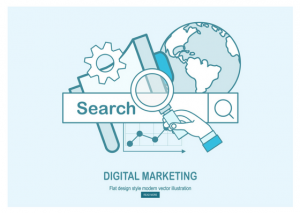The Importance of Understanding SEO and SEM
It can be difficult to understand the grasp of SEO and SEM, particularly if you’re unfamiliar with them. Just to make things more challenging, the terms are often used interchangeable. But it’s crucial to understand SEO and SEM both have different definitions. They’re separate, but they can be used together.
What is SEO?
Search Engine Optimisation, SEO, is the process of maximizing the number of visitors a website gets by ensuring the link to the site ranks highly on search engine result pages, SERPs.
Typical factors influencing SEO include;
SEO is constantly changing how it determines the importance of a site, thus impacting sites rankings on SERPs. We can’t be completely certain of the contributing factors around SEO, but we can make educated assumptions, like the above factors. But there is one part of SEO that is concrete; on-page and off-page activities.
On-Page SEO
Meaning the settings that you apply on your website. Below are the factors that influence your On-Page SEO
- – Fitting keywords in to page titles, meta descriptions, heading tags, alt text, main body content, etc.
- – Blog posts with quality content
- – Page loading time
- – Social sharing integration with content; can users share your articles?
- – Clean page URLS
- – User friendly 404 pages
- – Mobile friendliness
Off-Page SEO
By off-page we mean activities you perform outside of your website, the most important being;
- – Link building
- – Social media marketing
- – Social book marking
What is SEM?
 Search engine marketing, SEM, involves promoting the site by improving its visibility on SERPs through optimizing and advertising. So, SEM incorporates SEO tactics, which perhaps explains the confusion between the two definitions.
Search engine marketing, SEM, involves promoting the site by improving its visibility on SERPs through optimizing and advertising. So, SEM incorporates SEO tactics, which perhaps explains the confusion between the two definitions.
Besides SEO, SEM can include the use of paid search like pay per click, PPC, campaigns and social media marketing. SEO is a form of SEM, it falls under SEM factors.
Understanding the Difference Between SEO and SEM
Your key take-away from this post is SEO is just one of the components of SEM. You should try to use the terms correctly. They don’t mean the same thing, ultimately their two separate terms, with unique meanings.
SEO and SEM; Which is Better for Your Business?
The debate between SEO and SEM is quite popular amongst marketers. SEM cannot succeed  without organic SEO, so if you choose to invest in SEM, both will go hand in hand.
without organic SEO, so if you choose to invest in SEM, both will go hand in hand.
PPC, apart of SEM, can be the quickest and most effective way to drive website traffic. For instance, when launching a website, you want your target market to know you’re out there! Since SEO can take months or even years, SEM would help you achieve results a lot quicker.
SEO may take a lot longer to start seeing results, it’s a lot cheaper than SEM.
You can choose to work with both. But if you had to choose one strategy, you need to look at your specific needs for your business, be fully aware of the differences between SEO and SEM and how your efforts will impact your leads and conversions.
About the author:
Marie Harwood is a Digital Marketing Assistant at Different Gravy Digital, Hale, Cheshire.
Different Gravy Digital are a full service Digital Marketing Agency operating in the Hospitality & Leisure, Financial Services, Legal & Property sectors. Products and services range from; 3D & 360° Tours, Website Design & Build, Social Media, Video Production, Search Engine Optimisation (SEO), Content Creation, Email Marketing, Online Feedback / Review Systems and Paid Advertising (Google, Bing and Social Media).
Contact Details:
marie@differentgravydigital.co.uk
0161 706 0004
120a Ashley Road, Hale, Altrincham, Cheshire, WA14 2UN
